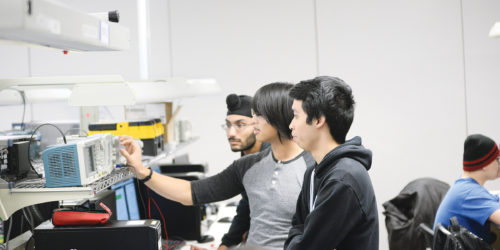
Teaching & Supporting Nigerian International Students
By Dr. Monsurat Raji and Dr. Nasreen Sultana (Teaching and Learning Consultants)
Beginning post-secondary studies in Canada for most international students is like playing a new game whereby students are expected to figure out the new rules and apply them properly in practice. It is more challenging for international students to win or play the game as they have to quickly adapt to the changes in their academic journey (Okusolubo, 2018). Most international students will start out drawing from their cultural orientation and previous educational backgrounds and experiences. Researchers agree that international students face more significant struggles than domestic students because of transition and adaptation problems (Leary et al., 2016; Raji, 2019).
This hub post intends to highlight the challenges faced by Nigerian international students, their unique experiences that often lead to such challenges, and how faculty can best support them to achieve academic success in Canadian classrooms. At Conestoga College, Nigerian students are the second largest population of international students.
Frequently Identified Challenges Faced by Nigerian International Students.
Academic: Changes in teaching and assessment methods, use of technology, understanding of faculty’s academic expectations, accent, language, and communication difficulties.
Financial: Work stress, expenses for housing and livelihood, having family in Canada, financial expectations from family and friends back home.
Psychological: Depression, states of confusion, homesickness, loneliness.
Cultural & Social Integration: Alienation, climatic changes, language, and communication difficulties.
Unique Experiences of Nigerian International Students.
- Nigerian international students have been taught mostly as passive learners who sit in class silently, taking verbatim notes, memorizing, and reproducing content in exams.
- Nigerian students have mostly studied in lecture-based classrooms with limited innovative learning experiences.
- They are more experienced with multiple-choice, short-answer, and essay assessment tasks. They have less experience with writing tasks, group projects, and other collaborative activities.
- They were raised with a communal orientation. Nigerian traditional education is communal and functional in structure and content, but this has not translated to Western education pedagogy.
- Most students see faculty as knowledgeable and respectable; hence Nigerian international students may resist contributing insightful ideas to the learning process. This may become better as they spend more time in Canadian classrooms.
- Nigerian students are confident in their English language skills because of the influence of British colonization. However, cultural accents may interfere with how they speak English language.
Support and Strategies for Nigerian International Students’ Academic Success.
To support and provide better learning experiences for Nigerian international students in the Canadian classroom, faculty should endeavor to:
- Ensure that all students speak English language when communicating in the classroom because in your class, there could be just a few students from Nigeria. Students may come from the same country or continent, but they may not speak the same language.
- Invite students’ input in classroom activities to engage them and foster their sense of belonging.
- Engage students in participatory activities to foster engagement, student-to-student connection, as well as faculty-student connection. Proactively monitor the class activities so that some students are not left out.
- Facilitate student groupings to ensure a diverse group structure. If you have only one or a few Nigerian students, ensure that they are not left out without a group.
- Explain assignments clearly and clarify students’ understanding of assessment expectations.
- Provide concrete examples to go with feedback and suggest areas for improvement. You may not have sufficient time to offer detailed feedback but consider giving at least one concrete example of how students can improve on their next assignment.
- Refer students to academic support services to assist them with academic writing skills or Student Success Services when there is a need for such support. Many of your level 1 students may not know about these services. You may want to share the links to the services in the course shell.
- Provide multiple opportunities for students to reach out to clarify course concepts and discuss their learning progress.
- Show empathy and care for students’ academic progress.
Along with Nigerian students, you may have students from other African countries as well. You may see some noticeable similarities across the students from African countries. Please see this post where African international students share some of their suggestions with us.
Works Consulted.
Leary, T., Hotchkiss, K., & Robb, A. (2016). International students. In C. C. Strange & D. H. Cox (Eds.), Serving diverse students in Canadian higher education (pp.100 – 127). McGill-Queen’s Press-MQUP.
Okusolubo, G. S. (2018). Academic and social challenges faced by African international students. International Journal of Economics & Management Sciences 7(2), 1-8. doi: 10.4172/2162-6359.1000514.
Raji, M. O. (2019). Experiences and adjustment challenges of Nigerian international students in United Kingdom higher institutions. International Affairs and Global Strategy, 70, 1-8. DOI: 10.13140/RG.2.2.11369.52324.






